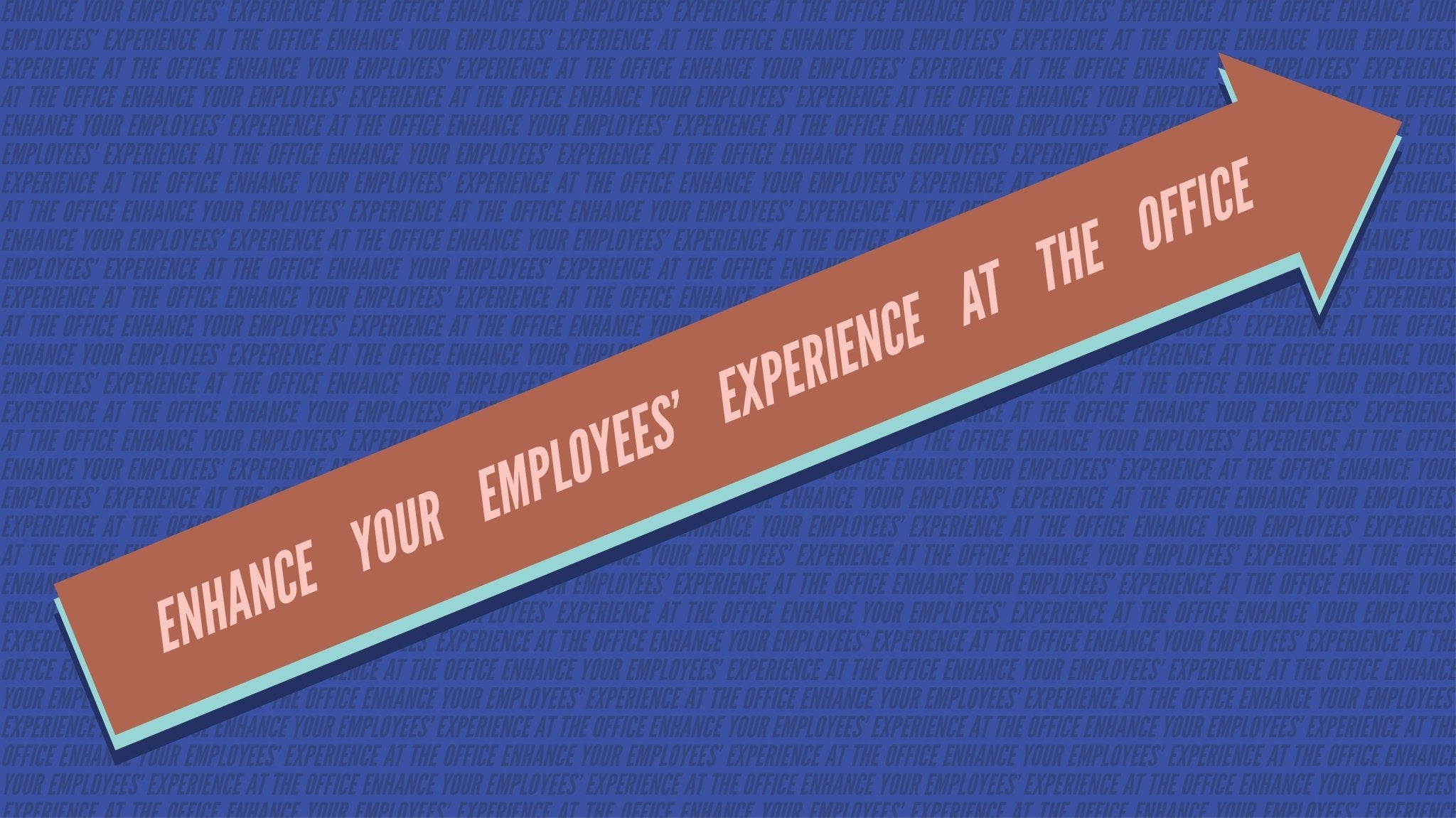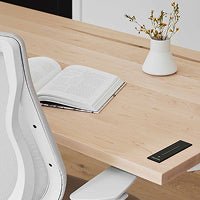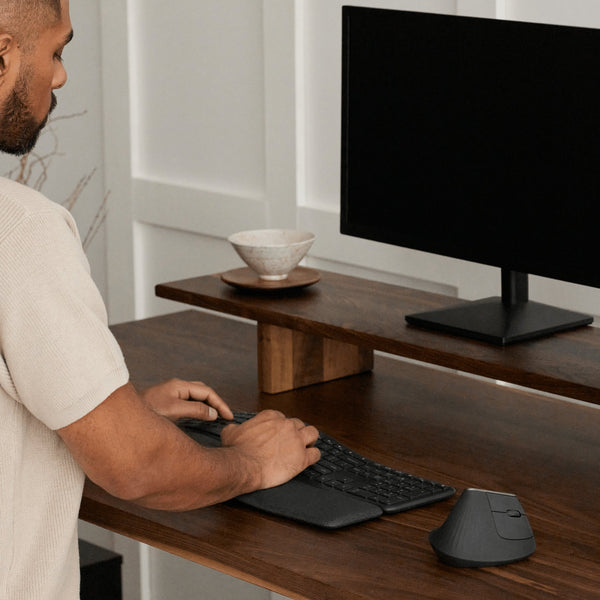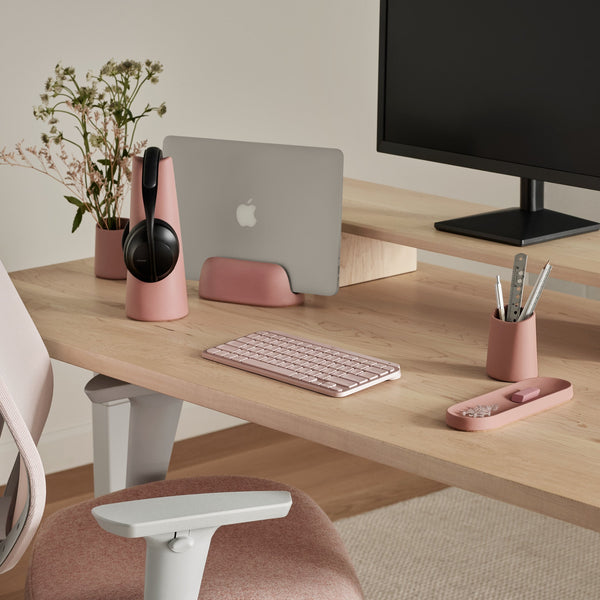Going into a physical office every day used to be the norm, and often obligatory, so minimal effort was put into making the work environment inviting. Many employees settled for generic and drab offices. But research shows that how an office is designed plays a significant role in employees’ productivity. A study that surveyed over 10,000 people around the globe found a high correlation between how engaged employees were and how satisfied they were with their work environment. Still, only 11% of them say they were very satisfied with their office space.
With the pandemic forcing most of the workforce into their homes, traditional offices now seem outdated. Not only did people take the time to create a liveable and comfortable home office properly, but they recognized that remote work comes with advantages that they are not ready to part with. As many companies plan to downgrade their space and allow more people to work from home every week, offices need to be rethought to lure employees back into the office, even if it's only a few days a week. We have a few tips to help you do that!
Review the basics
If you only remember one thing from this post, make it be that lighting is your top priority! Research says that 40% of employees say that natural light is the most important part of a productive work environment (furniture coming in 2nd with 20% of votes). Surveyees believe that natural light is uplifting, helps productivity, and makes them feel more comfortable. The University of Illinois and Northwestern Medicine even showed that people exposed to natural light at work did more physical activity, slept better, and reported an overall higher quality of life. So understanding how to use lighting in your office space is vital. Here’s a helpful guide from the University of North Carolina:

The functionality of the space is, of course, critical to a productive one. This includes appropriate furniture, and working technological equipment, including computers, servers, and printers. Make sure your space is clean and organized, as this also contributes to how efficient your employees are. Check that there is plenty of space to walk around and enough rooms for both group meetings and solitary work. This means that you may want to add music to your area, as it can positively impact people’s moods while working (check out our playlists for productivity here!), but you also need silent rooms for focused work phone calls and privacy.
Finally, ambient temperature. It’s a cliché that offices are always too cold or too hot and that no one ever agrees on the ideal office temperature, but you must get it right. Thankfully, you can turn to science to find answers. A study at the WZB Berlin Social Science Center concluded that room temperature did have an impact on productivity, but it differed for men and women: women did better at higher room temperature than men, but the loss in productivity that men experienced in warmer temperatures was not as important as the women’s loss when the room was too cold. The CCOHS recommends a range of 23-26 °C in summer (optimal temperature: 24.5°C), and between 20-23.5 in the winter (optimal temperature: 22°C).
Be health-conscious

Reorganizing your office space for the return of your employees after the pandemic is over will require you to adapt to safety guidelines. But creating a health-conscious environment not only applies to preventing germs from spreading, but it also applies to looking after your employees’ overall health. And there are many ways to do that:
The most applicable one is ergonomic furniture. Ill-fitted furniture that promotes long periods of immobilization puts employees at risk of developing important diseases and disorders. This includes the biggest work-related in-office pain complaint: lower back pain, which affects half of Americans every year. It also causes 264 million lost workdays every year in the United States. Investing in ergonomic furniture not only makes your employees feel valued as you invest in their health, but also saves you money. The first step is an ergonomic chair. Then, you can look into sit-stand desks to increase your employee’s activity levels throughout the day. Check out this guide for tips on how to ergonomically adapt your office space.
Another way to help your employees pursue an active lifestyle is having sports-related amenities at the workplace. Having access to showers at work can encourage your workers to bike to work or go for a run during lunch break. Make sure you have a place where bikes can safely be stored. If you have the room, create a space where you can hold fitness classes like happy hour yoga, or get gym equipment.
Lastly, encourage your employees to eat healthily by making healthy food available to them. Have nutritious snacks in the kitchen, get fruit baskets from local farms delivered weekly, and keep filtered water in your fridge. You can even look into lunch delivery programs to help your employees reduce the amount of take-out and junk food they consume.
Create a warm, liveable and sustainable space

Working from home for months means people got used to working in their cozy home atmosphere. Creating a warmer, more inviting environment at work can help make the transition back to the workplace more comfortable.
This means recreating liveable spaces found in homes, like a functional kitchen and comfy break rooms. Rethinking the traditional break room can give you a strong advantage and give your company culture a boost. We’re big fans of our nap room. But you can create game rooms or even meditation rooms. Asking your employees for their suggestions can be a fun way to spur their creativity and implicate them in the redesign process.
In addition to making sure your lighting is appropriate in every room, decorating your space with intent can help create a warm and interesting atmosphere. Think about what colors you use to paint the walls as it affects productivity and satisfaction. Adding rugs and using various flooring types can help create a more welcoming space. Add conversational pieces of furniture and art to show your company’s personality and spark creativity. Plants are an essential part of our office design. The University of Exeter even showed that plants can increase productivity by 15% in workplaces. If you have an outdoor space, make it accessible and inviting to your employees.
More and more employees and employers are concerned about how sustainably they live their lives. Creating a sustainable workplace can help your employees stay true to their values. Look into the many ways you can create a greener environment. They include going paperless, having a fully-functioning kitchen (reusable plates, utensils, cups) with composting and recycling, checking your energy usage, and more.
Creating an engaging and motivating workplace for your employees is crucial. In fact, 97% of employees see it as a direct reflection of how much their employers value them, according to a survey done by Management Today. If you need inspiration, here are a few examples that can apply to your corporate office! What makes your work environment great? What do you wish your office could have?






Leave a comment